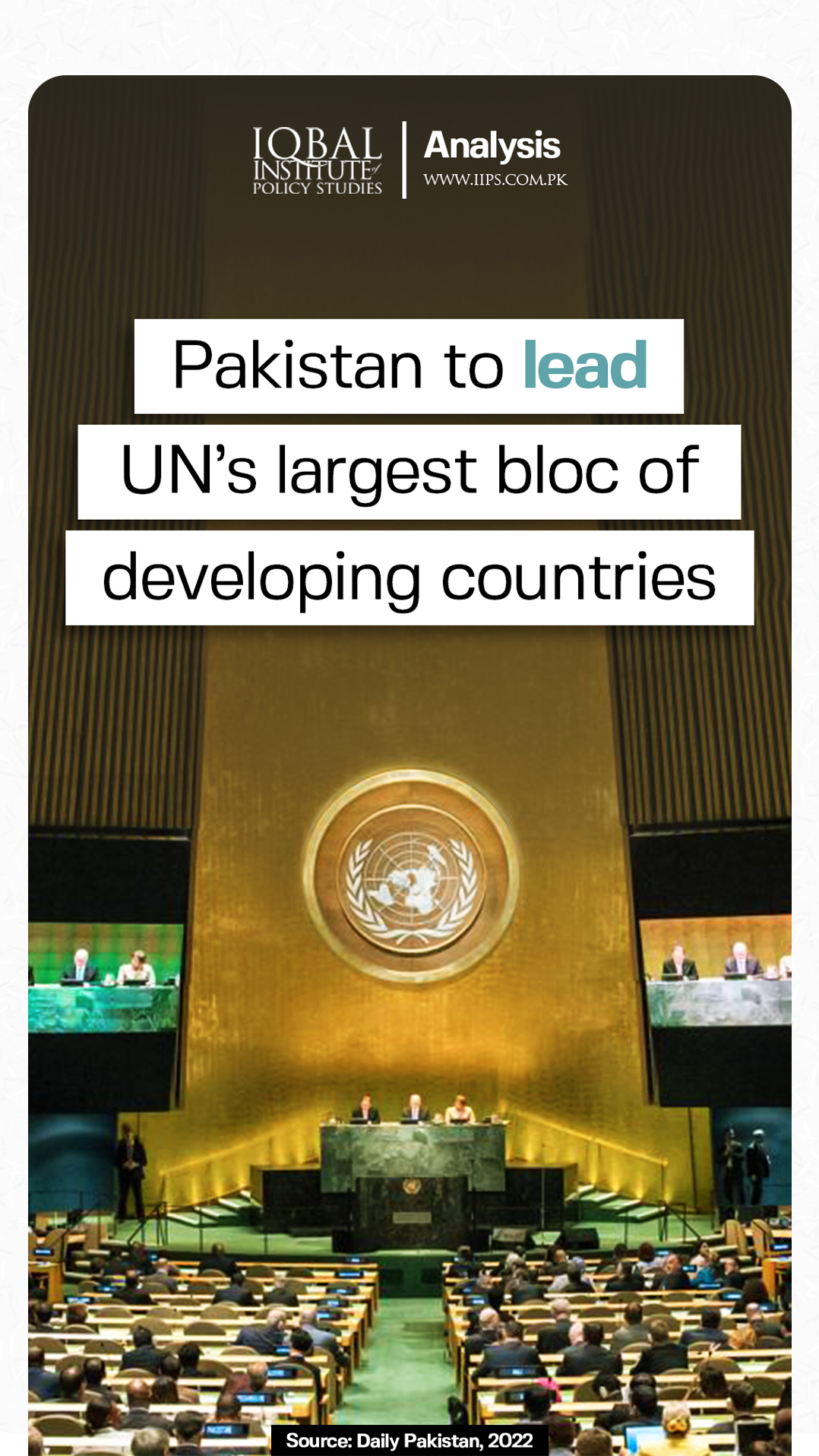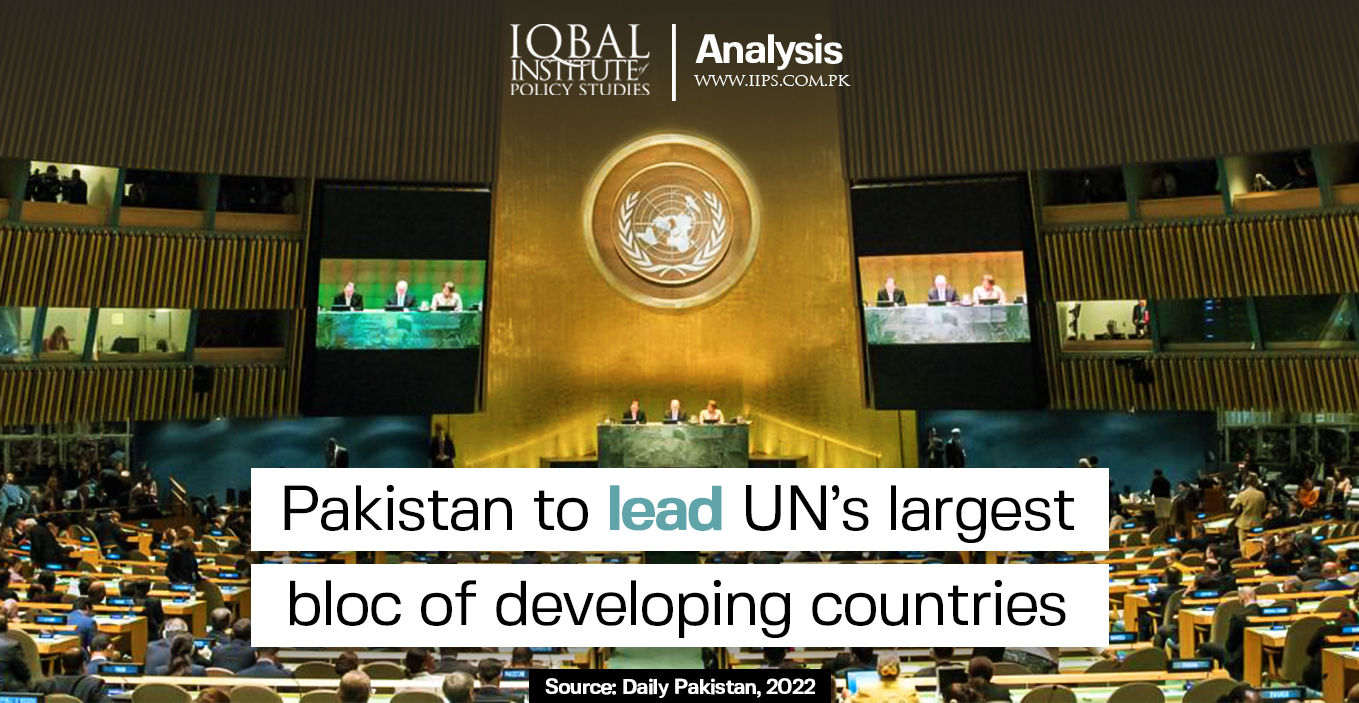Pakistan has been elected the next chair of Group 77. Foreign Minister Makhdoom Shah Mahmood Qureshi presided over the opening segment of the handover ceremony held in a virtual format, which was also attended by the outgoing Chair (Foreign Minister of the Republic of Guinea), UN Secretary-General, and President of the UN General Assembly.
The Group of 77 (G-77) at the United Nations is a coalition of 134 developing countries designed to promote its member’s collective economic interests and create an enhanced joint negotiating capacity in the United Nations. Pakistan is one of the founding members of the Group and has had the distinct privilege of serving as its chair in New York on three occasions in the past.
The G-77 made significant contributions towards advancing the economic and social adjectives of developing countries in developing international negotiations at the United Nations. There is a need to retain cohesion and unity in G-77’s collective endeavours to promote prosperity in conditions of equity and equality.
The world is confronted with triple crises: the Covid pandemic and its consequences; the challenge of realising the United Nations Agenda 2030 for Sustainable Development; and the existential threat of climate catastrophe – which has had a disproportionate impact on the developing countries.
An inclusive and equitable recovery from current crises would only be possible if the developing countries are provided with adequate means, especially financial resources, to return to the path of sustained and sustainable economic growth. Regarding Covid-19, the universal distribution of vaccines is the best response to the mutating virus.
The developing countries need to promote a “Common Development Agenda” to achieve the UN Sustainable Development Goals (SDGs) by 2030. Turning to the threat posed by climate change, the major onus for mitigation must be assumed by the industrialised countries. All climate actions must adhere to the Principle of Common but differentiated responsibility.
Pakistan would work with the members of the group to promote such a development plan, including debt restructuring; redistribution of the $650 billion new SDRs to developing countries; larger concessional financing; mobilisation of the $100 billion in annual climate finance by the developed countries; ending the billions in illicit financial flows from the developing countries and the return of their stolen assets; and the creation of the equitable and open trading system and a fair international tax regime. Pakistan will work with all the member states to develop an effective and concerted response to developing countries’ multiple challenges.



Leave a Reply